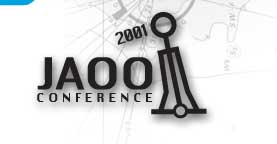|
|
 |
<bigwig> service: jaoo
Bio:
Dr. W. Ed Hammond is Professor, Community and Family Medicine;
Professor, Biomedical Engineering; and joining the faculty of the Fuqua School
of Business, Health Sector Management at Duke University. He is also on the steering
committee for the Center for Bioinformatics and Computational Biology at Duke.
Dr. Hammond is the President-elect of the American Medical Informatics
Association; twice
chair of HL7; currentlyvice-chair of the HL7 Technical Steering Committee and co-chair of the Vocabulary
Technical Committee.
He has previously served as the chair of the Computer-based Patient Record Institute.
HL7 Version 3: What does object oriented modeling bring to the data
interchange messaging standard?
Abstract
Data interchange standards have become a critical link in building both hospital-based information management systems as well as broader-based patient-centered information systems. From its beginnings in 1987, Health Level 7 (HL7) has become the leading international standard for the message-based interchange of clinical data. The current version, Version 2.4, is based on an implicit model and uses a delimiter-based syntax.
The presentation will present briefly the V2.4 standard, including an example message. Then the philosophy and process of Version 3, based on an object model, will be presented. What is gained in the transition to Version 3 will be discussed as well as where HL7 is in the migration to V3. The remainder of the session will include an update in the additional activities of HL7 beyond messaging standards and will include Clinical Data Architecture, Vocabulary, Clinical Content Object Working Group (CCOW), clinical templates, and Decision Support.
|
|

|
Presentations:
Standardization or harmonization HL7 is going OO or how? (ArcMed, Managing Software Projects)
William Hammond, Duke University Medical Center
Wednesday [13:45 - 14:30]
Session Room 2
Slides from this presentation
Next speaker

|




